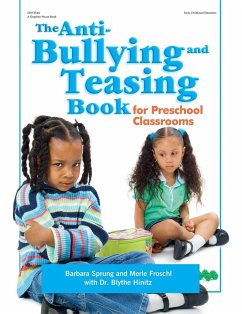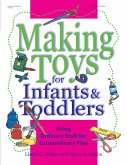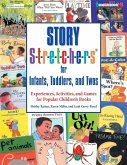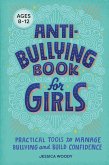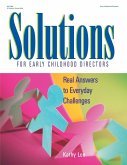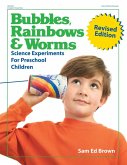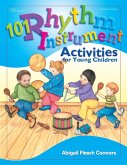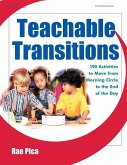In preschool, children encounter their first experiences in forming and joining social groups outside their family. It is natural for them to experiment with social interactions while learning about their world. In this guide, teasing and bullying are addressed as a continuum of intentionally hurtful behavior, from making fun of someone to repetitive physical abuse. Creating a caring environment at the beginning of school reduces the need for children to assert themselves through negative behavior such as teasing and bullying. WithThe Anti-Bullying and Teasing Book, teachers of young children can address this behavior before it develops.Special features of this book:Information on family-school partnerships to engage families in the development of a caring community and to reinforce teachings about empathy and mutual respect.Techniques to teach children how to think about and manage their feelings in a safe and appropriate way.Tips for teaching children how to act appropriately as a bystander. Children who stand by while a friend is being teased and bullied may be uneasy or even scared that they might be next. They feel powerless and learn negative ways to interact with others. Teachers have the opportunity to work with bystanders, helping them to develop the confidence to stand up for a friend. As a result, children will become more able to stand up for themselves and not tolerate teasing and bullying behavior.The Anti-Bullying and Teasing Bookcreates an environment that reinforces the positive messages essential to childrens sense of safety and well-being. Some such messages are quoted from Hurt-Free Schools by M. Christine Mattise:If you are hurt on the playground, someone will come to see if you are all right.If you are alone, you are welcome to join in a game.If you are being teased, other children will come and tell the teaser to stop.If you need help, ask an adult.When certain social milestones and goals are achieved, children can easily live and work within their world. According to the National Association for the Education of Young Children (NAEYC) Code of Ethical Conduct, these goals can be stated in terms of democratic life skills, which include the ability to:see ones self as a worthy individual and a capable member of the group.express strong emotions in non-hurting ways.solve problems ethically and intelligently.be understanding of the feeling and viewpoints of others.work cooperatively in groups, with acceptance of the human differences among members.Teachers have a major influence on how children view themselves within the larger world. Children mimic teachers language and interactions. By creating a climate of mutual respect, teachers can help children learn to develop empathy and treat others fairly and kindly, and to stand up for themselves and their friends in safe and developmentally appropriate ways.The Anti-Bullying and Teasing Bookwill help teachers create a school environment in which all children feel comfortable, safe, and welcome.
Bitte wählen Sie Ihr Anliegen aus.
Rechnungen
Retourenschein anfordern
Bestellstatus
Storno

